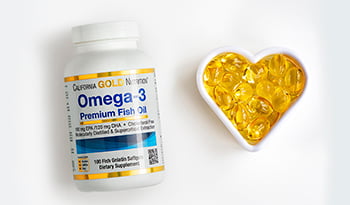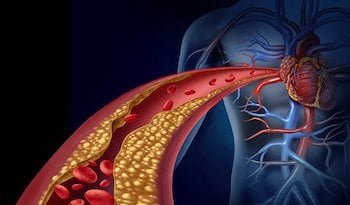Почему мужчины подвержены повышенному риску заболеваний сердца? Рассказывает врач

Совсем недавно я вел прием в отделении неотложной помощи. Два часа утра, напротив меня сидит практически мое собственное отражение — молодой человек, жалующийся на боль в груди.
«Доктор, мне как будто бы слон сел на грудь», — воскликнул он.
С получением всей необходимой информации от бригады скорой помощи я понял, что, судя по всему, ему не грозит незамедлительная опасность. Первоначальные анализы были в норме, а на ЭКГ были видны лишь незначительные отклонения.
«Вы уверены, что дело не в сердце?», — спросил я у врача, передающего мне больного.
«Не может быть! Ему всего 32 года!», — таков был ответ.
Он меня не устроил. Я подошел к лечению как к эпизоду сердечного приступа и давал пациенту обычный в таких случаях набор лекарств, после чего его состояние начало улучшаться. На следующий день он прошел ЭКГ под нагрузкой, которая показала слабый приток крови к сердцу. Его немедленно направили на катетеризацию, где ему поставили стент от блокады одной из основных сердечных артерий (именно ее часто называют «делателем вдов»).
Мужчины и убийца номер один — заболевания сердца
Болезни сердца остаются основной причиной смерти в США, и их число продолжает расти. Вероятность развития заболеваний сердца у мужчин намного выше, чем у женщин. Один из 3-6 мужчин сталкивается с болезнью сердца.
Если эта информация еще не звучит достаточно тревожно, то отмечу, что более половины случаев протекают бессимптомно вплоть до постановки диагноза. Кроме того, в эту статистику еще не входят «внезапные» смерти. Вопрос — почему мужчины страдают от заболеваний сердца намного чаще женщин?
16 натуральных средств для здоровья сердца: подробнее.
Являются ли гормоны причиной сердечных заболеваний у мужчин?
Мужчины и женщины сильнее всего отличаются друг от друга гормонами. У них разные уровни эстрогена, прогестерона и тестостерона. Уровень эстрогена и прогестерона выше у женщин, а тестостерона — у мужчин. Да, эти гормоны отвечают за либидо, но они выполняют и много других важнейших функций в организме, например, регулируют плотность костей, энергичность и мышечную массу.
Так, тестостерон также важен для сердца. Он способствует расслаблению кровеносных сосудов там, где это требуется больше всего, — например, в сердце. Если говорить об электрической активности сердца, тестостерон способствует стабилизации калиевых каналов сердца. Он также помогает уменьшить повреждения сердца при сердечном приступе.
С учетом всего этого можно предположить, что тестостерон полезен для сердца. Значит ли это, что эстроген и прогестерон вредны для него? Нет! Эстроген защищает кровеносные сосуды, улучшает сигнальный путь холестерина и уменьшает вероятность образования тромбов в артериях (они являются одними из основных факторов заболеваний сердца).
Так что же не так с мужскими гормонами? Дело в том, как вырабатываются гормоны. Для их синтеза необходим достаточный уровень жиров и холестерина. Эти жиры преобразуются в тестостерон, эстроген и прогестерон — вырабатываемое количество зависит от конкретных органов или тканей, пола, возраста, а также ряда других факторов.
Инсулинорезистентность и заболевания сердца у мужчин
Еще один важный фактор здоровья сердца — взаимодействие жировой ткани и инсулина. С ростом среднего объема жировой ткани в США растет и резистентность американцев к инсулину. Это значит, что при постоянном поступлении в кровь большого количества сахара (глюкозы) организм вырабатывает инсулин для снижения его уровня и переноса глюкозы в клетки.
В какой-то момент клетки насыщаются глюкозой (которая преобразуется в жир), и для нее попросту не остается места. Еще одна тарелка пасты — и уровень сахара в крови остается высоким, что ведет к выработке поджелудочной железой еще большего количества инсулина. Цикл продолжается до тех пор, пока ткани не перестают реагировать на инсулиновый ответ. Поджелудочная железа истощается, и развивается инсулинорезистентность.
При этом баланс половых гормонов смещается от «хороших» (например, тестостерона) к «плохим» (например, гормону стресса кортизола) — подробнее об этом ниже. Это называют «синдромом кражи прегненолона».
Как бороться с инсулинорезистентностью
Тема инсулинорезистентности сама по себе заслуживает пары статей. Если кратко, с ней можно бороться с помощью диеты, богатой клетчаткой, в основном из овощей. Важно и влияние рациона на поджелудочную железу и уровень инсулина, выражаемое в гликемическом индексе. В целом, следует выбирать продукты с низким гликемическим индексом (т. е. с низким инсулиновым ответом), например, не крахмалистые овощи.
Можно изменить источник «топлива» для организма с углеводов на кетоны. В этом поможет либо кетогенная диета (рацион с высоким содержанием жира и низким уровнем углеводов), либо интервальное голодание. Наконец, некоторые добавки (например, берберин) могут помочь в регулировании чувствительности организма к инсулину.
Что такое кетогенная диета? Врач рассказывает обо всем, что нужно знать: подробнее.
Ароматазация и здоровье сердца у мужчин
Помимо инсулинорезистентности и синдрома кражи прегненолона, высокое содержание жира у мужчин чревато изменением баланса между тестостероном и эстрогеном за счета фермента ароматазы. Это нужный организму фермент, однако при большом количестве жира его уровень резко возрастает. Ароматазация может привести к набору веса и инсулинорезистентности (за счет описанного выше механизма).
Вернуть уровень тестостерона к норме можно за счет подавления выработки ароматазы путем употребления таких продуктов, как:
Некоторые добавки также могут помочь блокировать синтез ароматазы, например:
Кортизол, стресс и болезни сердца
Вернемся к «злодею» кортизолу. Высокий уровень кортизола усиливает инсулинорезистентность и набор веса, повышает артериальное давление и вероятность развития заболеваний сердца. Кроме того, кортизол непосредственно сужает кровеносные сосуды, нарушает сон и способность справляться со стрессом. Если говорить о болезнях сердца у мужчин, их главным фактором является стресс, а не сами по себе гормоны.
В исследовании, опубликованном в 2016 году в JAMA, изучались факторы риска у норвежских мужчин и женщин, страдающих от болезней сердца. Мужчин с такими недугами было вдвое больше, чем женщин. Авторы исследования пришли к выводу, что изменения уровня гормонов не влияют на риск развития заболеваний сердца. Так что, возможно, дело не в самих гормонах, но в их влиянии на реакцию организма на стресс. В последующих исследованиях предполагается, что основным фактором может быть разница в реакции мужчин и женщин на стресс. Соответственно, мы можем повлиять на это.
Управление стрессом и влияние кортизола
Одно из наиболее полезных изменений, что я ввел в свой распорядок дня, — использование практик осознанности. Ежедневная медитация довольно проста и занимает всего пять минут. Самое сложное в ней — научиться ничего не делать. Еще один аргумент в пользу медитации для здоровья сердца — в 2017 году Американская кардиологическая ассоциация провела анализ исследований, в котором отмечена взаимосвязь между медитацией и снижением артериального давления и уровня стресса, а также более частым отказом от курения табака.
С учетом того, что реакция на стресс является важным фактором риска сердечных заболеваний у мужчин, вероятность пользы медитации для здоровья сердца кажется весьма высокой. Сегодня есть множество приложений для медитации, так что вы можете быстро начать заниматься ею прямо дома.
Польза медитации: подробнее.
Еще один способ управления стрессом — улучшение качества сна, за счет чего также регулируется влияние кортизола на сердце. Медитация помогает улучшить сон, но есть и много других способов крепче спать ночью, например:
- спать при температуре 16-18ºC;
- спать в максимально темном помещении;
- минимизировать воздействие синего света;
- вести дневник для управления стрессом;
- принимать добавки, способствующие расслаблению, например, мелатонин, L-теанин, ГАМК и магний.
Выводы
Надеюсь, эта информация была полезной для всех тех, кому важно здоровье своего сердца. Главное — при любых тревожных симптомах незамедлительно обращайтесь к врачу. От этого может зависеть ваша жизнь. Некоторые небольшие изменения образа жизни могут быстро изменить уровень гормонов и реакцию организма на стресс, что поможет сохранить сердце здоровым.
Источники:
- https://www.ncbi.nlm.nih.gov/pmc/articles/PMC3828782/pdf/jah3-2-e000271.pdf
- https://onlinelibrary.wiley.com/doi/abs/10.1111/j.1365-2265.2005.02414.x
- https://jamanetwork.com/journals/jamainternalmedicine/fullarticle/2548254
- https://www.tandfonline.com/doi/abs/10.1080/07448480009596270
- https://www.ahajournals.org/doi/10.1161/JAHA.117.002218
ОТКАЗ ОТ ОТВЕТСТВЕННОСТИ:Информация, содержащаяся в Центре здоровья, не предназначена для постановки диагноза...













































































 Содержание
Содержание















